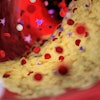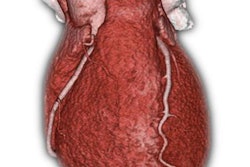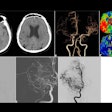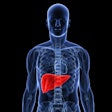Dear AuntMinnie Member,
OK, so it's officially November, and there's no denying it -- RSNA 2016 is right around the corner!
Fortunately, AuntMinnie.com has got your back with our annual Road to RSNA preview of the proceedings from radiology's showcase conference in Chicago. Our editors have reviewed all of the important abstracts to bring you the key presentations, posters, and refresher courses from the meeting to help you plan your schedule.
We launched Road to RSNA 2016 yesterday with our preview of sessions in imaging informatics; today we're covering radiology's workhorse modality, CT. Over the next couple of weeks, we'll bring you previews of MRI, ultrasound, women's imaging, and more.
Click on the links below to find the section that interests you, or go to rsna.auntminnie.com to get started.
CCTA triages heart patients
Meanwhile, German researchers used coronary CT angiography (CCTA) to determine which patients with symptoms of cardiovascular disease should be sent on for invasive coronary angiography.
A group representing several German centers randomized some 300 symptomatic patients to one group that received CCTA and another group that went directly to coronary angiography. The researchers then compared both groups for outcomes such as procedural complications, diagnostic yield of angiography, and length of stay, among other parameters.
They found that those receiving CCTA first had less need for invasive angiography, while the diagnostic yield of coronary angiography rose markedly. Using CCTA also helped reduce hospital stays.
Find out how well it worked by clicking here, or visit our CT Community at ct.auntminnie.com.
Radiation and Alzheimer's
Finally, a new animal study has found that low levels of radiation have an impact on molecules in the brain similar to the effects of Alzheimer's disease. Learn more by clicking here.




















